
GALA Management Team
GALA supports student attendance at Body IQ Festival 2021
Posted on March 2, 2022
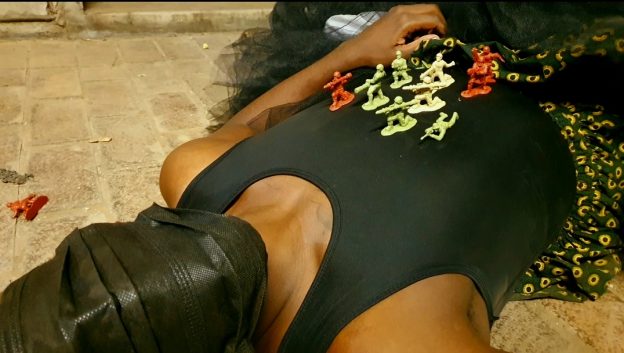
The international ‘Body IQ Festival 2021 – Bodies of Cultures, Communities and Places’ in Berlin hosted around 130 presenters from around the globe. The three-day live and online festival offered workshops, talks, panel-discussions and performances, and aimed to address questions of embodied recovery & revisioning in the context of global social & ecological crises and changes. It offered a forum for practice exchange, debate, networking, application and articulation of potential for somatic-activisms into a diverse range of cultural and social environments.
GALA provided free online passes to students at Bath Spa University (UK), Concordia University (Canada), and Wits University (South Africa). Here are their reflections on their experiences:
Jean-Philippe Poirier, BFA student, Concordia University, Canada
I am a student at Concordia University in Montreal doing my BFA in Art Education – Visual Arts. During this program, I am focusing on both my role as a future art teacher and my own artistic practice by doing more advanced classes in the disciplines that interest me. My practice focuses on drawing in a more contemporary sense, drawing as mark-making, drawing as performative, leaving behind the rectangle. I work in sculptures, installations, and performances. They are based on my experience and how my body sense/interacts with the outside world.
I didn’t know about the festival until I received an e-mail from my school presenting the award.
Despite the time difference between Berlin and Canada, I attended most of the talks that I could. Waking up at around 5 and I was eager to see what the festival had programmed for the day. I made a schedule and took small naps when there was nothing scheduled.
Attending and participating in discussions in the Body IQ festival gave me a new understanding of my own practice. How to name things, on what to focus my research on and new paths worth looking at that I didn’t know how to find or know of their existence. The activities helped me discover new paths to access my thoughts and ideas. I also learned how to take time and slow down to better inform my own practice. Instead of jumping from project to project.
Attending the festival was an interesting and growing experience for me and my practice and I would hope to be able to attend in person in a future edition.
Heather Anderson, BFA student, Concordia University, Canada
As we continue to live with the realities of the Covid-19 pandemic and the larger structures and systems of late-stage capitalism, I am comforted by somatics practices, theory, and community as space to hold complexity, multiplicity and unknowing. The BodyIQ festival presented many beautiful opportunities to widen my gaze towards the entangled lineages of somatics and learn from their many wisdoms. Participating digitally from so-called “Canada” allowed me to embody relations across spacetimes. It was a beautiful offering of learnings composed across difference and imagination, adversity and changemaking. The variety of workshops, panels, and performances expanded the question for me: what does it mean to be together? In a time of great pain, grief, and resilience and with increasing digitization of our bodies and lives, the act of togethering feels a central tenant as we explore ourselves, our bodies, community, and our histories of land and place. My own practice is largely shaped by exploring the felt sense of questions as an embodied approach to imagined and uncovered spacetimes with the hope of revealing relations, connections, and deeper questions. I feel extremely grateful to the BodyIQ festival and all the practitioners, artists, thinkers, workers, and dreamers who have left me with new embodied approaches, ideas, and the many complex questions we pull along with us.
Hubert Thériault, BA student, Concordia University, Canada
As I was getting ready to hibernate, the Body IQ somatic Festival brought a bright and vibrant light in my autumn. For three days in a row I got to wake up, open my computer and connect with beautiful and generous artists and scholars from all around the world. As a Choreography student at Concordia University, I learned to organize bodies and movements. Somatic is often taught as a method to expand the knowledge of the self (as an individual body) rather than a relational practice. I didn’t know about the existence of this festival before my teacher, Kevin O’connor, told me about it. Hearing about people’s practices and research revealed to me the bounds between somatic and social justice. As a political activist myself, I always struggled with representation (like traditional theater, dance, musichall, etc.) I never was satisfied with how to make my work political and participatory. The different practices encountered during the festival gave me hints and many ideas of process. Attending this festival made me step into a world I didn’t know and always hoped existed. I am especially thankful to those who organized and managed technical support during the festival. I also want to thank the GALA network for giving me the opportunity to attend the festival and to all participants who were kind and generous enough to share their knowledge during this short period of time.
Divija Melally, BA student, Bath Spa University, UK
The Body IQ festival kindled my already present interest in Somatic practices. Each workshop, talk, discussion and performance completely engaged me. They made me question the physical, political and social hierarchies that are still present in society, and how somatic practices and re-embodiment is vital to bring about change. We live in a world where the mind is given privilege over the body, where we are mostly educated from the neck up, and the body is merely treated as an instrument to carry the mind [Ken Robinson].The festival emphasized on the equal importance of the body. The body is not a separate entity, and it carries all the stories, feelings and emotions that we encounter in our lives. This has informed my practice in multiple ways, and I want to research more and delve into how the body and the movement that it produces can be used as a means of therapy.
The talks centering on erasing the historically inscribed “whiteness” also had an impact of me. Being a person of colour from India, I had never given much thought to the various pressures that people of colour endure, and how this would affect their body and their mind. This has intrigued me to study and research how different bodies process information from the point of view of the culture that they come from, and how the bodily reaction and sensations can vary from person to person.
I felt really honoured to attend the various events at the Body IQ festival. It was an incredible opportunity, and I learnt multitudes from the experienced international presenters. I want to thank GALA and BODY IQ for giving me the free online pass to attend the festival, and making this experience possible.
Anusia Govender-Pillay, Ph.D. Student, Wits University, South Africa
My inspiration for my current PhD study comes from having grown up in South Africa, during apartheid as a descendant of the Indian indentured (1860). The relationship to my body, identity, and sense of belonging has always been ambiguous and in flux. I am the progeny of the originator of Indian Classical dance in our country, and spending half my life in India, studying dance since I was 7. The long history of ‘second rate citizenry’- led to me questioning what ‘Indian-ness’ means for me as a 4th generation South African. The aim of my study is to be able to see the indigenous/marginalised in territory that was previously dominated by a white/colonial presence, in places and spaces that are non-traditional. The idea is to highlight the interweaving of cultures while also disrupting the notion of purity and authenticity around South Asian dance and the melange of dance styles present in my body of work.
The festival was a cultural feast to my focus on the interweaving of cultures in the dance space of my autoethnographic study, that integrates Theatre and Performance and Visual arts. I have been flirting with the concept of Somatics for most of my life without being aware of it. Attending this festival has inspired me to make somatics a more conscious/concrete part of my creative study. I find myself questioning the deeper personal connections with the past, present and future of inclusivity in our local academy. How do I play with the idea of the body, embodied and paper?
The progression of the festival was beautifully curated and took us on a journey of self-renewal. Each presenter and participant had a commitment to a different kind of thought and practice. I am so grateful to be given this opportunity to be a part of it
Cristina Alejandra Jiménez Gómez, Ph.D. Student, Concordia University, Canada
The experience of participating in the Festival was relevant for my work because it was an encounter between somatic practices and academia, theory, activism. The Festival integrated a diversity of bodies, places, and communities. It portraited how somatics can draw together global environments and issues, how embodiment has a relevant role for activism, and how it is crucial to continue creating more socially engaged practices.
As someone expanding their knowledge in the field, the Festival provided a broad context of somatic experiences, communities, and environments. It allowed me to identify practitioners, techniques, and resources. I took two workshops: “African Holistic Dance” by Sandra Golding and “Somaticizing the camera” by Ben Spatz. I attended as well some performances and presentations, such as VIRA REALIS Ensemble / Vibrato or Stellaria Media, among others. I also volunteered as co-host for some online events.
In the workshop African Holistic Dance, we could explore grounding and home movements. When the body is in motion, it seeks creativity. African rhythms and moves have spiritual and healing dimensions that help the body to inhabit the spirit of a specific purpose. Some of the questions to navigate were, Where are our movements grounded? Which can make the body feel “at home”? How can beats be located in different parts of the body? This workshop was an invitation to connect with the awareness of energy, movement, and intention for creation. In “Somaticizing the camera”, Ben Spatz presented four process focuses: inter/intra-relations, the external view, and the video-graphic relation. I am interested in exploring Spatz’s approach to video essay as a valuable tool to understand how embodied research is documented, how it provides new knowledge production, its subsequent dissemination, and data generation.
To integrate what I experienced in both workshops, I produced brief documentation of the activities and inquiries developed (see fig.1) to be included in my research project: mise-en-corps:puesta en cuerpo: an embodied (an)archiving.
Figure 1. Video essay: mise-en-corps: puesta en cuerpo: an embodied anarchive.
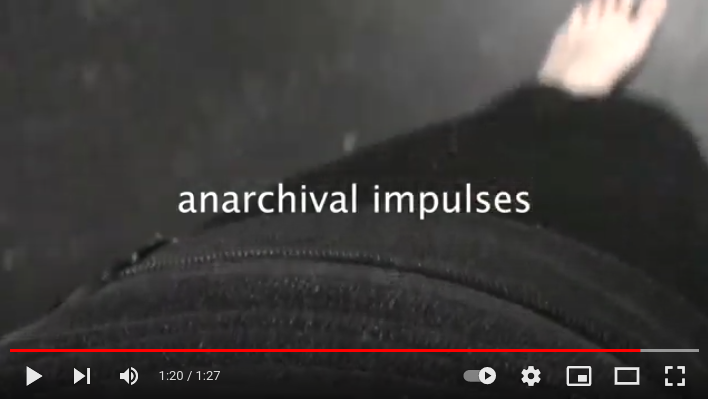
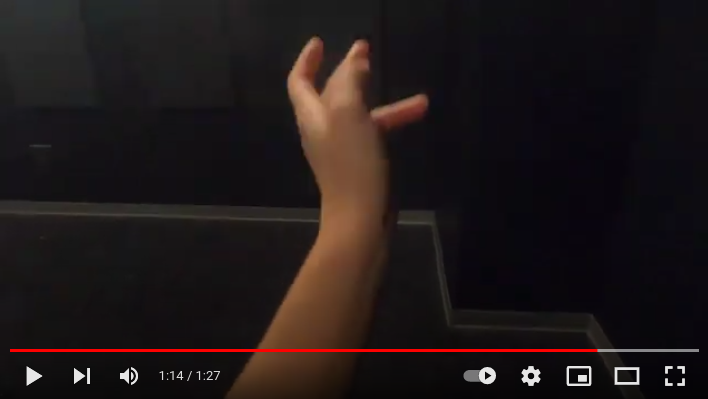
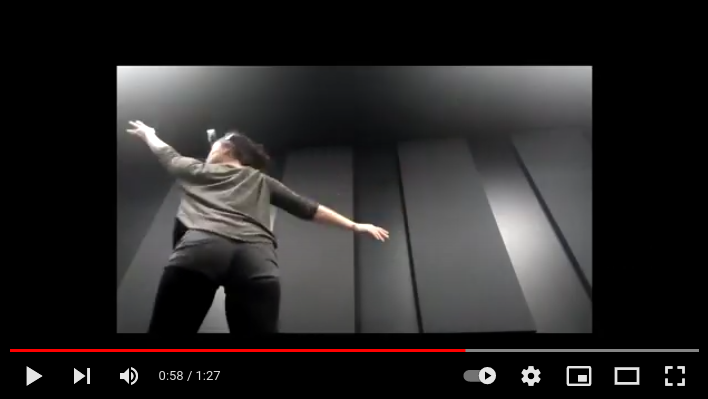
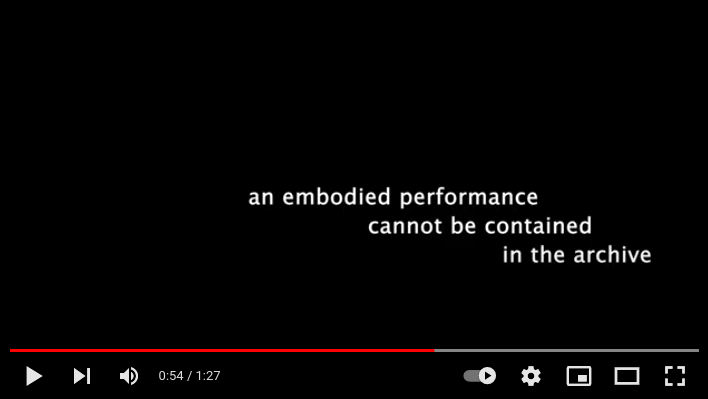
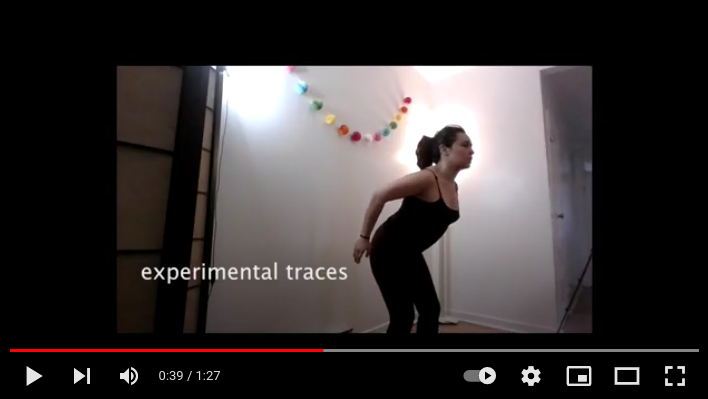
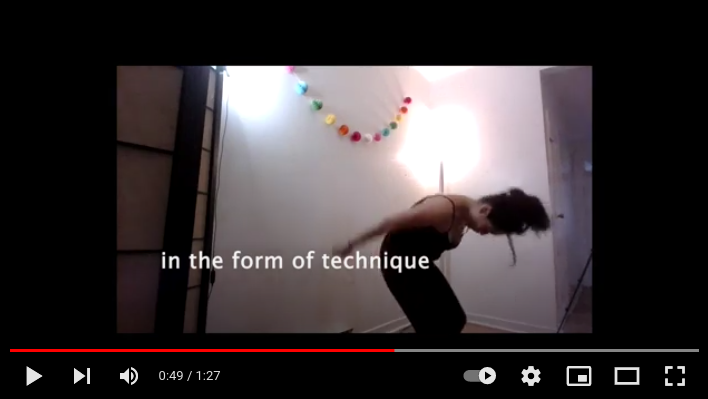
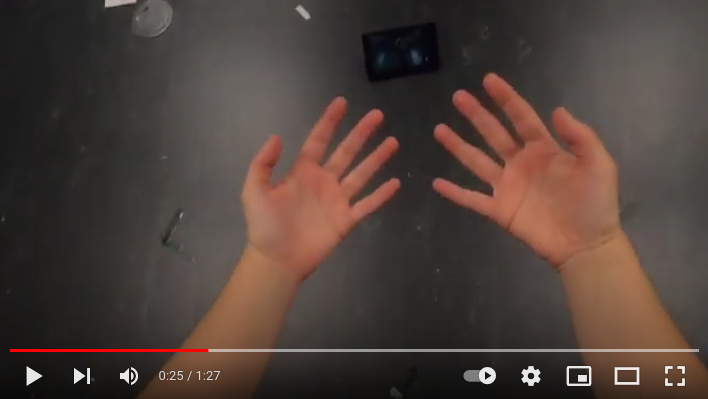
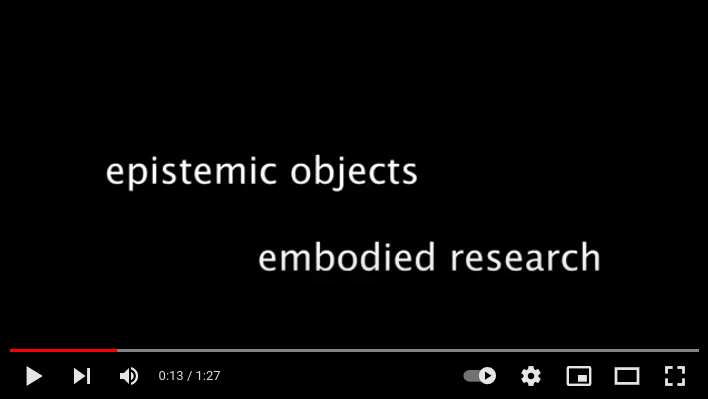
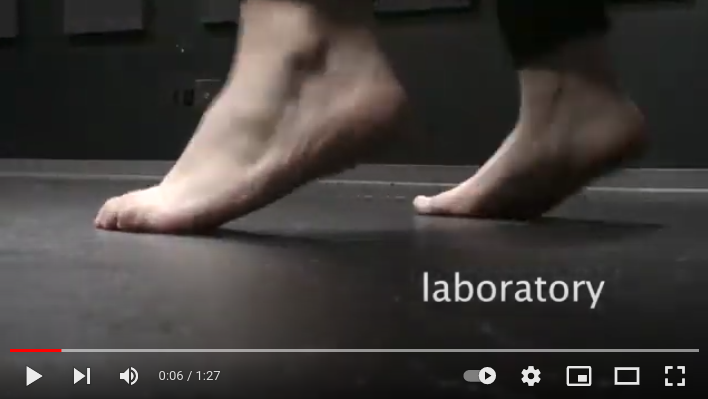
By Cristina Alejandra Jimenez Gómez, november 2021.
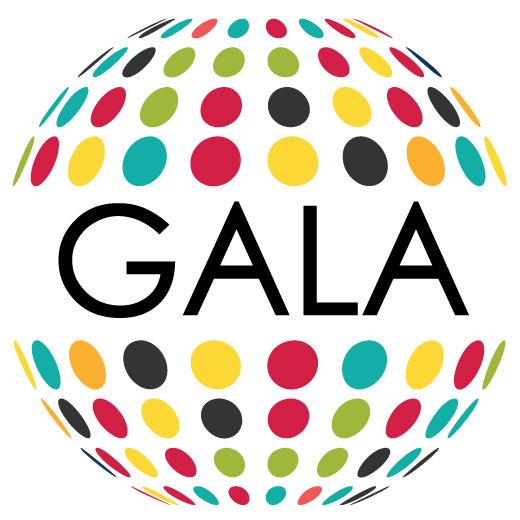

Responses